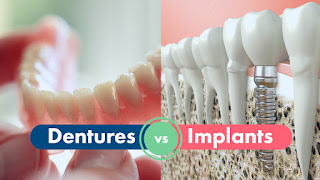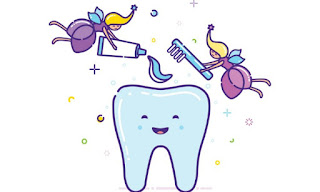DENTURES VS IMPLANTS

When you are missing one, some, or all of your teeth, these are two main options that dentists typically recommend. Each of these treatments has its own list of pros and cons that may make it a better option for your situation. Consider these dentures vs implants: pros and cons to make an informed decision that will benefit your long-term health. Advantages of Dentures Dentures are less costly than implants and therefore are the most affordable option for some patients. The process to create the dentures is non-invasive. No surgery required. If additional teeth are lost in the future, it is easy to modify the dentures to accommodate the lossThey’re easy to care for. Just brush and floss as you do your natural teeth. Disadvantages of Dentures They do not look as natural as dental implants. They must be removed and thoroughly cleaned regularly. Many patient...

